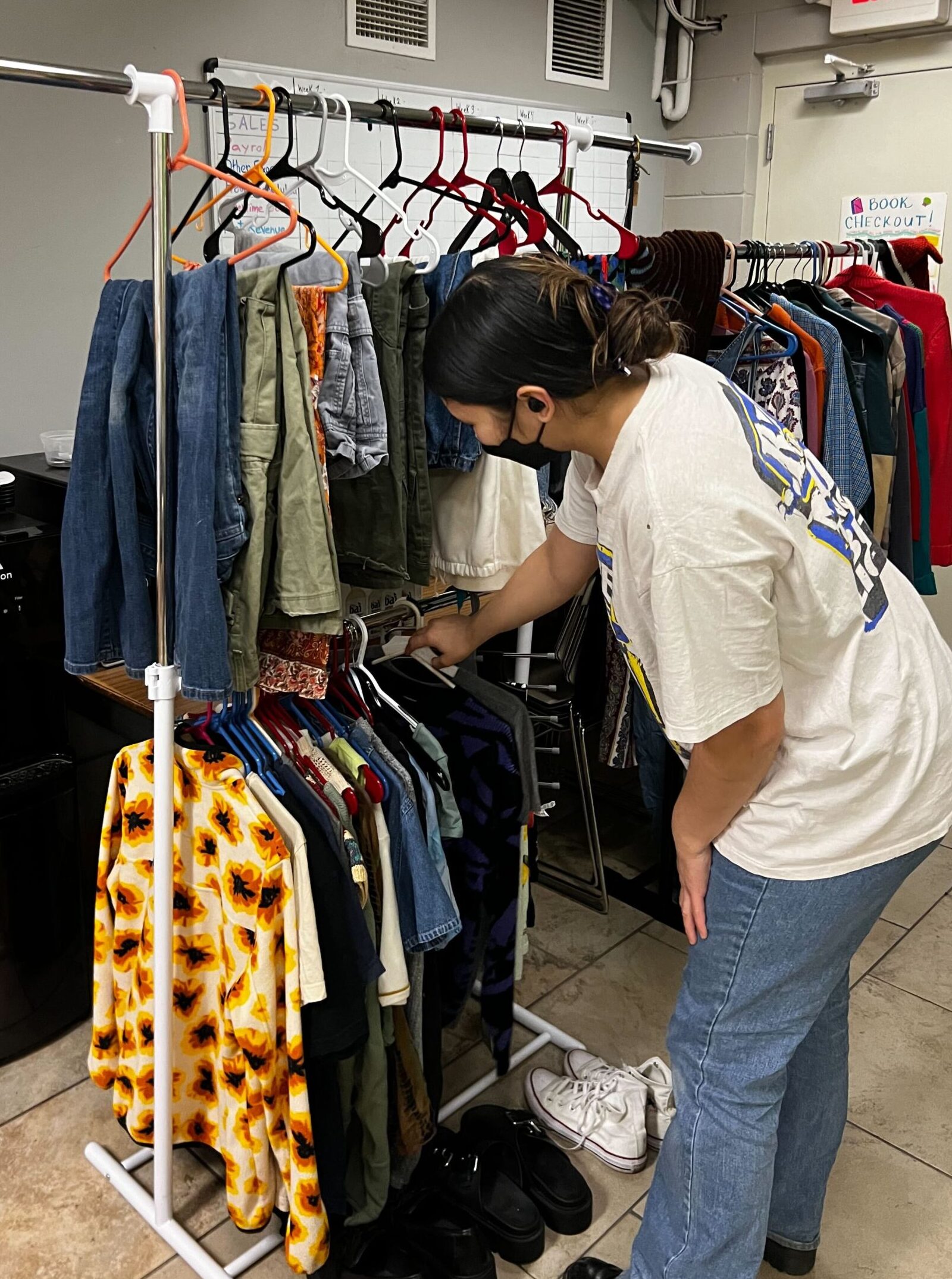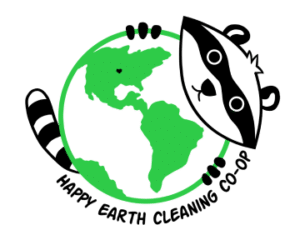
Introduction
Welcome to Day 4 of Happy Earth Cleaning Co-op’s Earth Week celebration! Today, on April 25th, we’re delving into the world of fashion, focusing on how fast fashion leads to plastic pollution. At Happy Earth, we are rocking all-thrifted outfits! We support sustainable fashion, and encourage people to choose clothes that are ethical and eco-friendly.
Fast Fashion
In recent years, the fashion industry has undergone a significant shift towards fast fashion—a model centered on quick production, low-cost manufacturing, and disposable trends. Fast fashion brands churn out trendy clothes at a rapid pace, encouraging overconsumption and contributing to environmental waste.
Fast fashion has far-reaching consequences for the environment:
- Excessive Garment Production: The fashion industry produces billions of garments annually, with most ending up in landfills. The average person buys 60% more clothing items than they did 15 years ago, but keeps each item for only half as long.
- Textile Waste: Disposable fashion creates tons of waste, especially synthetic fabrics that take centuries to decompose. These common polyester-type clothing items shed microplastics into our waterways every time we do laundry – according to some reports, 35% of all microplastics in the ocean are plastic fibers from textiles. Clothing recycling is still in its infancy, with only 1% of discarded clothing being recycled.
- Resource Depletion: Fashion production contributes to greenhouse gas emissions, deforestation, and soil degradation. The industry ransacks 150 million trees for cellulosic fabrics annually, and non-organic cotton farming heavily depletes soil and pollutes waterways with pesticides. Factories that dye clothing often cause heavy dye pollution in nearby rivers.
- Social Injustice: Garment workers, especially in developing countries, often face low wages and unsafe working conditions. The fashion industry, one of the largest manufacturing industries globally, remains largely unregulated.
Thrift and Sustainable Fashion
In response to the environmental and social impacts of fast fashion, Happy Earth Cleaning Co-op advocates for thrift and sustainable fashion. Thrifted outfits take center stage today, showcasing the beauty of pre-loved clothing and promoting the principles of reduce, reuse, and recycle.
The fashion industry is at a turning point, with a growing emphasis on sustainability, but there’s still a considerable journey ahead. While some brands are leading the charge towards more eco-conscious practices, there remains a significant gap in the industry’s overall sustainability efforts. At Happy Earth Cleaning Co-op, we wholeheartedly endorse initiatives that prioritize transparency in the supply chain, ensuring consumers know exactly where and how their garments are made. We also advocate for the use of natural materials like linen, wool, organic cotton, and bamboo, which have a lower environmental impact compared to synthetic alternatives. We applaud brands that are pioneering a circular supply chain model, where fabrics are recycled and repurposed to minimize waste and maximize resource efficiency. As consumers, it’s essential to support these efforts by making informed purchasing decisions and demanding accountability from the brands we choose to support. Together, we can drive positive change and foster a fashion industry that respects both people and the planet.
Action Plan
Will you take at least one of these steps with us to support thrift and sustainable fashion?
- Shop secondhand at local thrift stores!
- Participate in clothing swap events or host your own.
- Tare Market in Minneapolis hosts clothing swaps occasionally, check their social media!
- Check out Rethink Tailoring, a local business focused on mending clothes to extend their life.
- Choose sustainable brands that prioritize ethical practices and environmental responsibility when you buy new clothing!
- Boody: Eco-friendly bamboo clothing.
- Yes Friends: Ethical fashion and accessories.
- Warp + Weft: Size-inclusive denim wear.
- Fair Indigo: Ethical and sustainable clothing.
- Tentree: Sustainable outdoor apparel.
- Pact: Organic cotton basics.
- Recycle clothing: Utilize clothing recycling programs like Subset, Retold, For Days, or Nike’s Sneaker take-back program to give old clothes new purpose.
- Explore the art of Furoshiki, a Japanese wrapping technique using fabric, to reduce textile waste AND gift wrapping waste (win-win!)
- Ask your legislators to create a bill that would call for transparency in the fashion supply chain industry. Washington, California, and New York are already looking into and passing these regulations!
Clothing Swap/Trade Event
Happy Earth staff can join us in the break room today for a clothing swap/trade event, where we can exchange gently used clothing. By giving pre-owned garments new life, we reduce textile waste and promote a culture of circular fashion.
Conclusion
As Thrifty Thursday concludes, let’s celebrate sustainable fashion and confront the environmental challenges of fast fashion. By embracing thrift and promoting sustainable choices, we can create a more equitable and environmentally conscious future. Join us tomorrow as we journey through time on “Through the Decades” day, exploring the evolution of climate change across generations.

